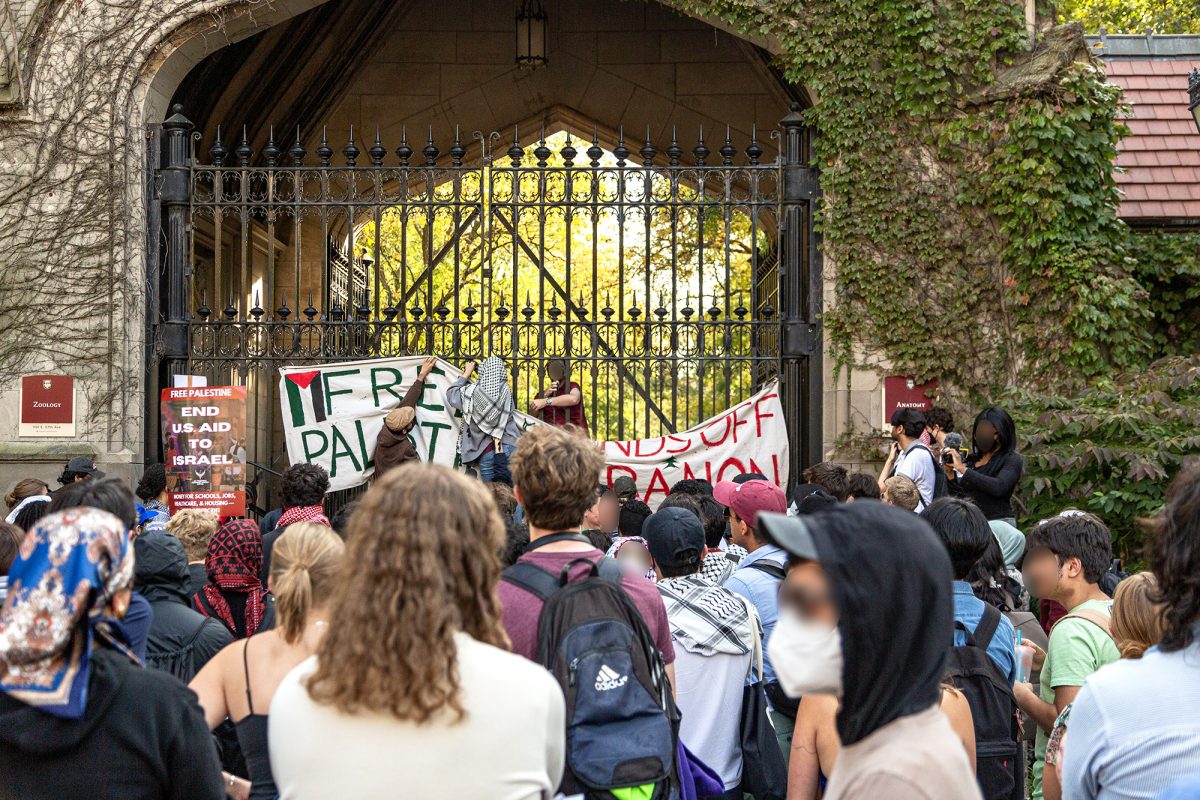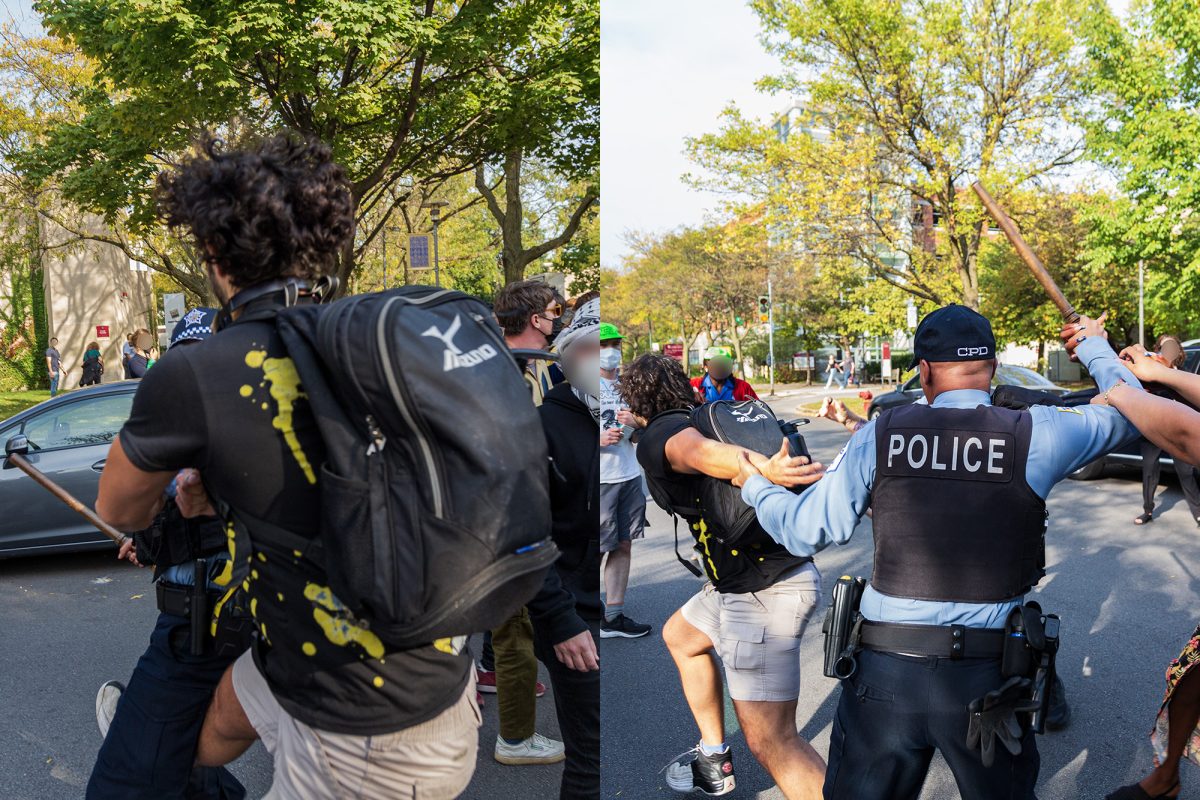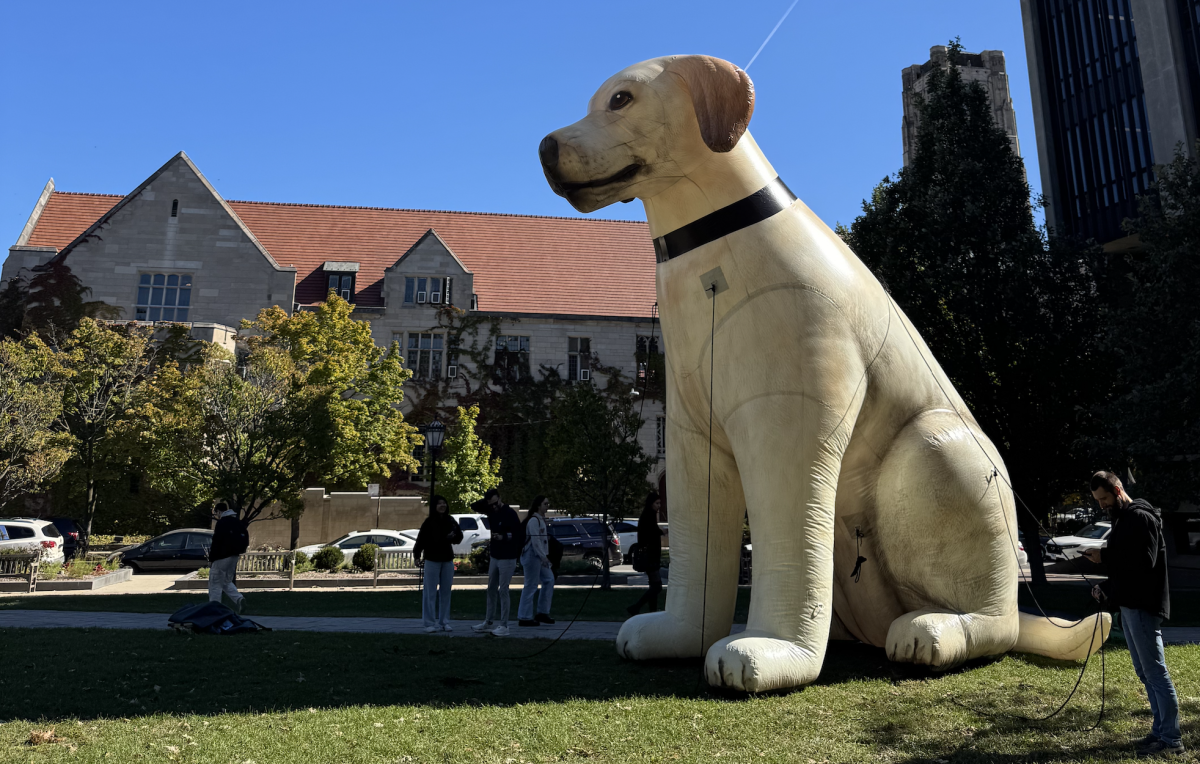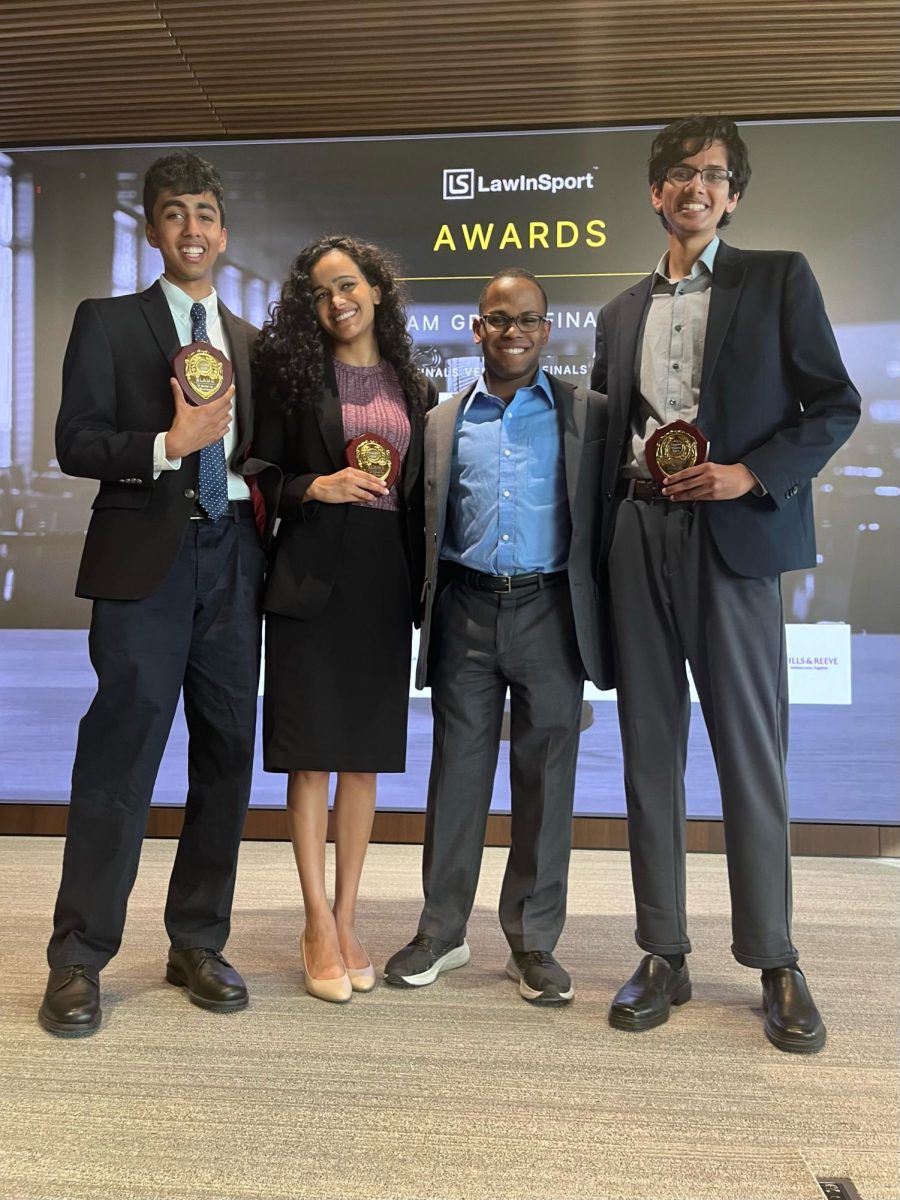[img id=”80205″ align=”alignleft”] For Faith McGhee, the future is uncertain. The middle-aged security guard has lived in her three-bedroom Grove Parc Plaza apartment for over 19 years, but after two failed Department of Housing and Urban Development (HUD) inspections, her apartment complex will soon see drastic change. As final plans await HUD approval, Grove Parc’s subsidized tenants aren’t sure if the complex will change ownership, be redeveloped, or even face demolition, forcing them to find new homes.
For the last two decades, McGhee has maintained her apartment despite what some might see as managerial neglect. Adorning the walls with flowers and curtains, the single mother transformed the boxy living space into a pleasant spot for her three children to grow up in. Despite the difficulty of procuring a work order for problems like loose kitchen tiles or the smell she said sometimes emanates from the floor, McGhee’s own routine repairs have kept her home in good shape.
“I sweep my porch, I scrub, I put a floor down on my kitchen. When [management] didn’t paint, I painted,” she said.
McGhee stuck it out in Grove Parc through the years when Woodlawn wasn’t as wealthy or safe as it is today. For a while, the complex was associated with gangs and criminal activity, said Ed Hinsberger, Chicago Director of HUD. Yet the thought of leaving now is devastating for McGhee. She breaks down in tears as she asks a question troubling many of Grove Parc’s subsidized tenants: “Why do we have to leave now that the neighborhood is finally getting nice?” And McGhee, along with many of her neighbors, already has an answer in mind: because of the University of Chicago.
Since Summer 2004, the Student-Tenant Organizing Project (STOP) has galvanized tenants to take on the University as the force behind their current circumstances. STOP maintains that racist University policies are to blame for the potential displacement of Grove Parc’s largely low-income black tenant population. With 325 Grove Parc residents officially backing STOP and 50 to 60 percent of residents endorsing it—according to STOP community organizer Alex Goldenberg (A.B. ‘06)—a sizable contingent of tenants see the University as the source of their problems.
Yet it’s unclear whether they have reached this view because the University actually intends to pursue Grove Parc, or because organizers are exploiting the negative reputation the University garnered in the ’50s and ’60s, when it practiced what administrators now call racist and insular policies, to pit tenants against the University.
“There is a belief among some community organizations…that argues that you should polarize issues. I don’t believe that polarizing issues is very helpful,” said Hank Webber, vice president of Community Affairs for the University. “I think that this is a hard problem….As for the claim that the University is some kind of a bogeyman—the University is an enormous asset to the South Side of Chicago.”
STOP, composed of students and local organizers, maintains that the University has veiled intentions to control the outcome of Grove Parc Plaza and that it has been eyeing the property for years. In its literature on the Grove Parc situation, STOP points out that Grove Parc is situated in what might be a desirable location for the school. The 504-unit complex sits on Cottage Grove Avenue from 60th to 63rd Streets. It falls between campus and the Green Line, “the only subway line within walking distance of the campus,” STOP says.
STOP argues that the University has the power to ameliorate the situation by promising to support current tenants. The University is a major force in the Woodlawn area and has two members—Webber and Rudy Nimocks, executive director of the U of C Police Department—on the board of Grove Parc’s ownership, the Woodlawn Preservation and Investment Corporation (WPIC). Valerie Jarrett, a University trustee, is managing director and executive vice president of Habitat Company, which manages Grove Parc.
“If the University takes a stance publicly, it would happen,” said Goldenberg, on the potential for resolving the situation with minimal hardship for tenants. “The University just has to issue a press release and speak out at a meeting.”
Administrators say the University is only minimally involved with Grove Parc. “[Influencing the situation is] not the University’s proper role,” Webber said. “The University wants to contribute to the quality of Woodlawn. We do that in a variety of ways. We are represented on a set of community [boards, such as WPIC]. It’s not our proper role to be making the final land use decisions.”
According to Nimocks, the University is only involved in Grove Parc in positive ways and is limited in influence. “The University is doing everything they possibly can,” Nimocks said. “We’ve being working a long time on doing this in the most equitable way possible.”
STOP substantiates its accusations against the University with a leaked 2004 PowerPoint presentation delivered to the Board of Trustees entitled “The University of Chicago: A Strategy for Property Acquisition,” in which a private consultant group indicates that controlling Grove Parc would “strengthen connections to mass transit” and “[provide opportunities] for additional commercial amenities.” The extent to which the University considered this prospect is unclear, and administrators maintain that the documents do not reflect its current strategies.
McGhee hesitated a moment when asked if the University is responsible for her situation. “There was always a rumor in the air,” she said. After prompting from Goldenberg, however, she added that before she met the STOP organizers, she “was in denial” about the University’s negative role. When she read a STOP flyer and decided to attend a STOP meeting in Washington Park two years ago, “I started finding out a lot of things I didn’t know,” she said. She agrees with STOP’s view that the University is pursuing an aggressive course in part out of racism.
“I think if it were low-income white people, things would be different,” Goldenberg said.
As a result, tenants are focusing on the University in their struggle. In their most recent effort, a group of tenants and STOP members attended a March event at which Webber was speaking and, according to Goldenberg, “grilled him” on the University’s involvement with Grove Parc.
In turn, Webber agreed to pass along their complaints to the board of ownership, a promise that he fulfilled. Goldenberg said Webber did not do enough, noting that Webber’s rhetoric pertains to his “personal” hopes that tenants’ demands be met, but that Webber seems less altruistic when charged with speaking on the University’s behalf.
“I don’t think it’s genuine,” Goldenberg said of the concern Webber has voiced.
In agreement with STOP, 20th Ward Alderman Arenda Troutman said the University has more interest in Grove Parc than it is willing to admit. “For years they’ve always said they’re not interested in Grove Parc. I don’t believe that to be true. It’s too close to the entryway of U of C. Of course they’re interested in seeing what happens there,” she said. “The University with all their influence and influential people can step up and do a better job [in helping the community].”
Nevertheless, others minimized the University’s role in the Grove Parc situation. Ed Hinsberger, HUD’s Chicago Director, said the University has not played a large role in negotiations with HUD. In proposals for Grove Parc’s future, he said, the University “wouldn’t have control over how the building is managed.”
Laura Lane, the executive director of the ownership entity WPIC, also downplayed the University’s influence. “I understand where some of those rumors started. In the time that I’ve been here, the University hasn’t had a lot to do with it,” she said. “They’re community stakeholders, and they have a voice on our board. But in terms of negotiations and all that fun stuff, they haven’t been participating as a formal entity in any other way.”
Hinsberger said he could not predict when final plans for Grove Parc would be announced, adding, “It’s in bad shape and something needs to happen soon.”








